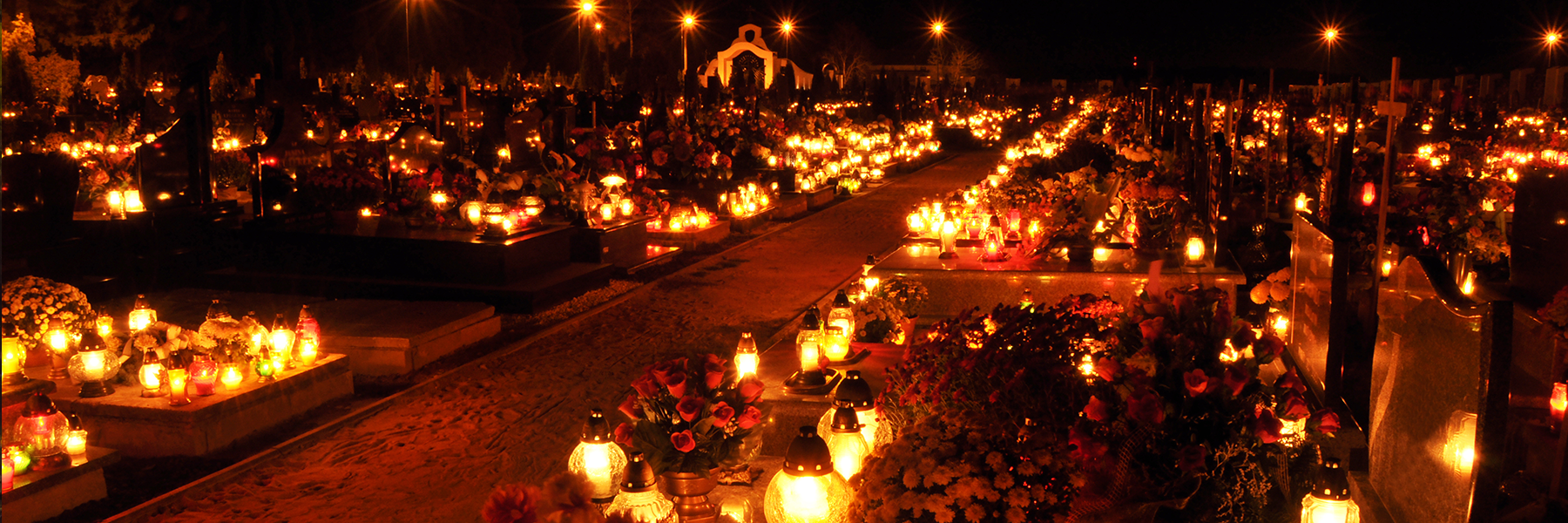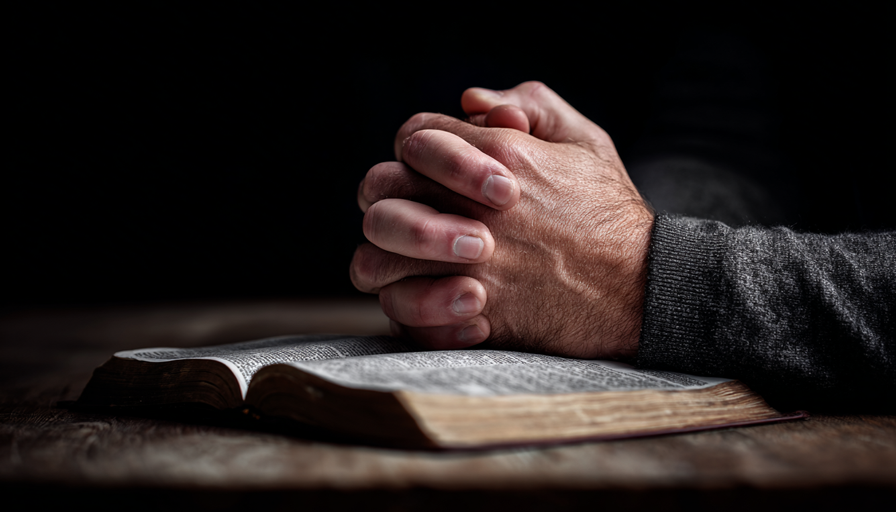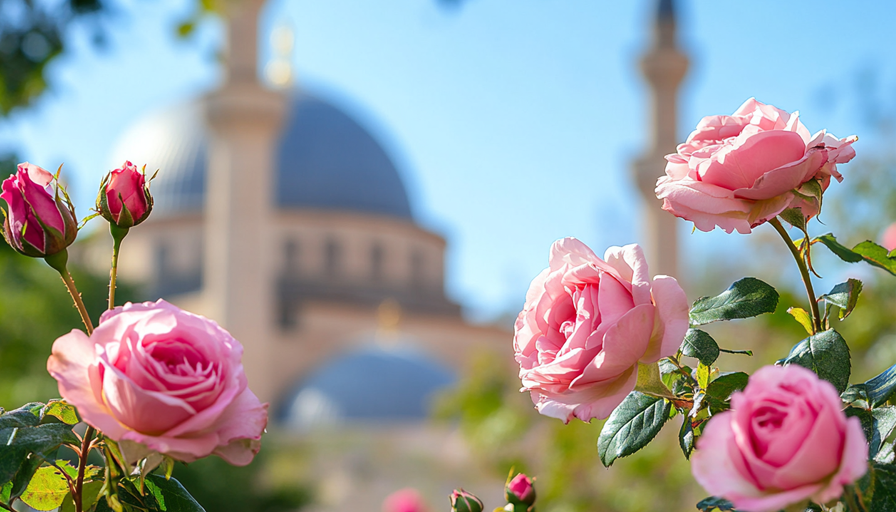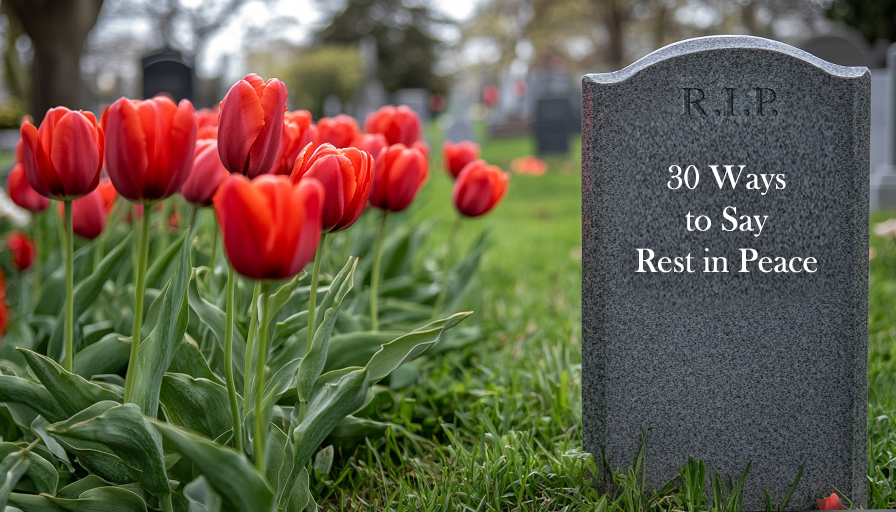What is celebrated on All Saints' Day and All Souls' Day?
If you weren't raised in the Catholic tradition, All Saints' Day and All Souls' Day are likely unfamiliar holidays to you. You might not guess it, but these days have been celebrated for over a thousand years. In many countries, you even get a day off on All Saints' Day. So, what is so important about All Saints' Day and All Souls' Day? And what is the difference between the two?
All Saints' Day on November 1st, commemorating all martyrs and saints
In the Catholic Church, All Saints' Day is celebrated annually on November 1st. On this day, all saints are commemorated. All Saints' Day holds great significance in the Roman Catholic Church. It is one of the so-called "solemnities," the most important liturgical days. During All Saints' Day, martyrs and saints are remembered, and they number more than 10,000. The day was originally observed on May 13th until 844 when Pope Gregory IV moved it to November 1st, likely to provide a more Christian flavor to the precursor of Halloween, which was celebrated around the same time.
Saints are individuals who have led exceptional lives and dedicated themselves to Christianity. In many cases, they even met their end while doing so, in which case they are called martyrs.
When a saint passed away, they were venerated because it was believed that a saint could more easily intercede with God on behalf of those who made requests. Many saints also have their own feast days. However, on All Saints' Day, all saints are collectively remembered.
Why November 1st?
In the past, each saint was commemorated on their individual feast day. After the 3rd century AD, the number of saints became so numerous that they eventually decided to celebrate them all on one common day, November 1st. To this day, All Saints' Day remains a holy day of obligation in the Catholic Church, highly significant to Catholic believers.
All Souls' Day on November 2nd, a day to remember departed loved ones
A day later is All Souls' Day, when people come together. On November 2nd, the day following All Saints' Day, all the deceased are remembered. The celebration is rooted in the belief that humans consist of both body and soul. After death, the soul departs from the body to return to God. However, before many souls can be in God's presence permanently, they must be purified in Purgatory. All Souls' Day is a time for prayer for the departed souls who have not yet found eternal peace with God.
The Christian festival originally dates back to the 10th century when the holy abbot Odilo of Cluny (c. 961-1049) instructed the faithful in Burgundy to remember all deceased believers on the day after All Saints' Day (988). This directive was based on an ancient monastic tradition in Spain. It wasn't until the 14th century that All Souls' Day became widely celebrated in the Catholic Church, with the significant influence of the plague epidemics that plagued Europe.
All Saints' Day and All Souls' Day, a Catholic celebration
Together with All Saints' Day, All Souls' Day serves as the annual commemoration of the deceased in many Catholic churches. Since the Middle Ages, candles and lanterns have been placed on many Catholic cemeteries in early November. On All Souls' Day, many families visit the graves of their loved ones to remember them. Special attention is given to the graves, which are adorned with flowers. It is a tradition to light candles and lanterns in the cemetery to show light to the departed. People also pray for the souls to be at peace and keep memorial cards, cards with an image of the deceased and a short story about them.
In our grave decoration category, you can find special grave lanterns, grave vases, and accessories such as memorial candles for lanterns. We also offer spare parts for our lanterns and vases. In addition to grave decoration, we provide unique memorial stones that can be placed on graves.
Silence
Protestants do not celebrate All Saints' Day or All Souls' Day. They remember their departed loved ones just before Advent, on the last Sunday of the liturgical year. However, all these days fall in a season when it gets colder and darker. Nature becomes quieter, reminding us that all life on Earth eventually ends. It's a moment for reflection, looking back, and looking forward. It's a time for both sorrow and beautiful memories.
Eternal Life
Jews and Muslims, like Christians, believe in an eternal life with God after death. Hindus and Buddhists, on the other hand, believe in the reincarnation of the soul, either as a human or an animal. Hindus also have a festival similar to All Souls' Day called Pitri Poedja, during which they offer food and flowers to their ancestors with special prayers.
Celts
The Celts lived from the 6th century BC for several centuries afterward. On the eve of All Saints' Day, the Celts celebrated their harvest festival and the start of a new year. They believed that the door to the underworld opened briefly during this time. According to their belief, the spirits of all the deceased from the past year would rise to possess a living body. This tradition laid the groundwork for Halloween.
To keep malevolent spirits at bay, the Celts wore eerie masks. This is likely the origin of the Halloween costume tradition, which is celebrated every year on October 31st. Halloween stands for All Hallows Eve. Irish immigrants, who were descendants of the Celts, brought the celebration to the United States in the 19th century and adapted it into their own tradition. Halloween is not closely associated with the Roman Catholic holidays.
Día de Muertos
If we look even farther afield, in Mexico, we find another interpretation of November 1st and 2nd. There, they celebrate Día de Muertos (the Day of the Dead). They believe that on November 1st, the souls of deceased children return to the earth, while those of deceased adults visit on November 2nd.
So, what is the difference between All Saints' Day and All Souls' Day?
On November 1st, Catholics celebrate All Saints' Day. A day later, on November 2nd, it's All Souls' Day's turn. The original purpose of this day is to pray for all the departed souls who haven't found their way to heaven.
According to Catholic doctrine, there are three destinations for souls after death: hell, heaven, or purgatory. Heaven is reserved for those who were entirely sinless at the time of their death. Hell is, of course, for heretics and the godless. Purgatory is for those who believed in God but died in a state of sin. In purgatory, the soul awaits purification and the possibility of eventually entering heaven. It greatly helps if living loved ones put in a good word for the departed.
Both All Saints' Day and All Souls' Day commemorate the departed. However, the main difference is that on All Saints' Day, you reflect on saints and martyrs, whereas on All Souls' Day, you remember your own loved ones.

















